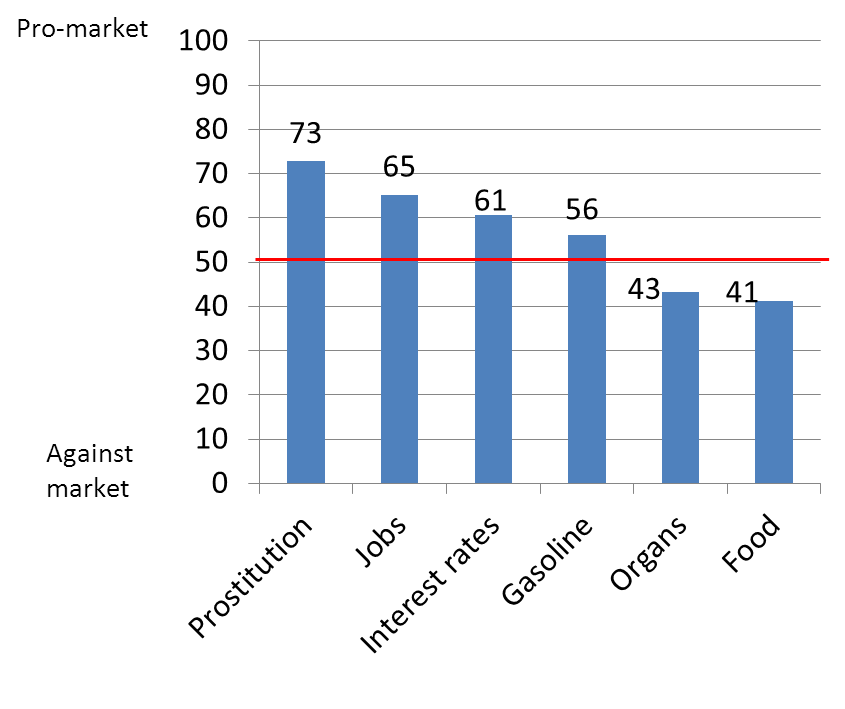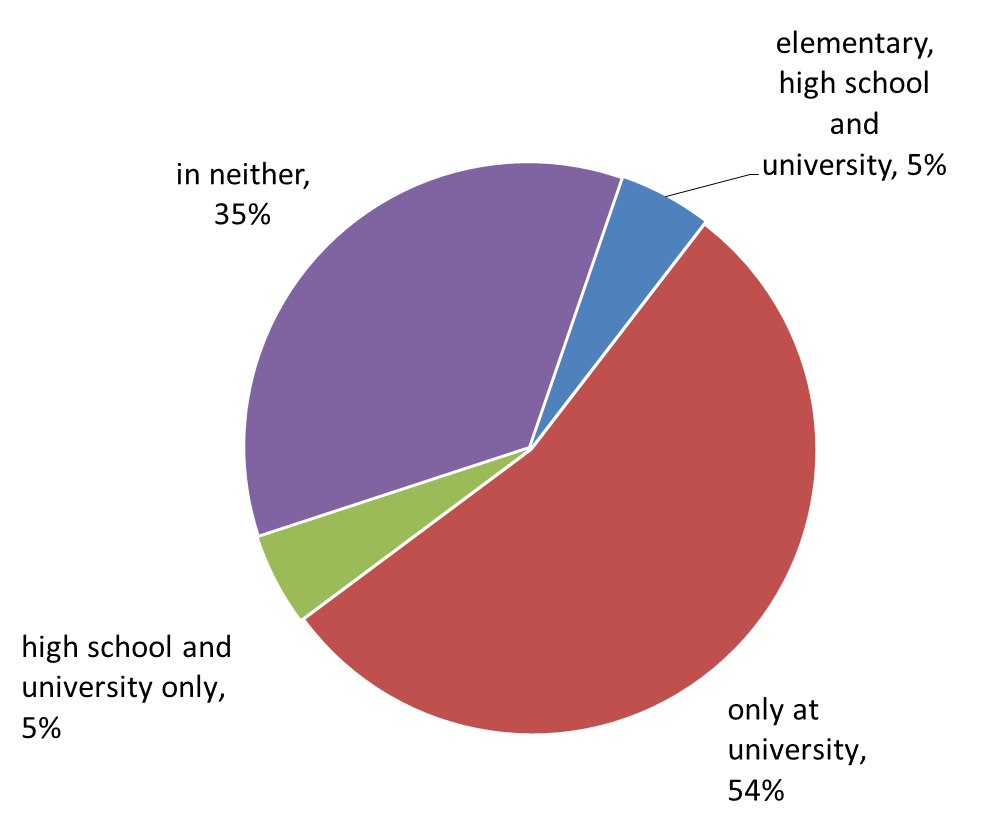Or: Prostitution and university tuition fees - these are the two that most of our readers fully support. A few weeks ago, we asked them to test their market boundaries and free market attitudes in a quiz on the blog. Almost 250 people responded; below, we present their views on each issue.
“Are you a hard core free market fan? Would you allow fuel stations to increase their prices in case of Sandy-style disruptions? Should people be allowed to sell a kidney?” – we asked our readers.
The specific questions can be read (and answered) at the bottom of this post. Just as a reminder: The questions aimed to test to what degree anyone is willing to leave allocation to market forces in the following areas:
- Fuel distribution during natural disasters
- Lowering wages if unemployment is on the rise
- Legalizing prostitution
- Selling your organs (i.e. a kidney)
- Food allocation during food shortages
- Free fixing of interest rates
- Tuition fees at various levels of the education system
We received around 250 responses.
The questionnaire was completely anonymous, and the answers are obviously non-representative. (We purposefully did not ask participants for their age, gender or level of education. The majority of our readers and respondents are presumably better educated than the Hungarian average, with higher incomes.)
The chart below shows market preferences for each issue on a scale of 0 to 100. 100 refers to a fully market-supporting attitude, 0 means the individual completely rejects market forces, so the midpoint between the two is at 50.
 Average of responses. 100: fully supporting markets.
Average of responses. 100: fully supporting markets.
The respondents favored market forces (scores are above 50) in the issues of prostitution, jobs, interest rates and fuel distribution. However, they rejected market allocation with regards to food shortages and the selling of organs.
Our readers were most “pro-market” in the area of prostitution: on a scale to 100, the question reached 73. Over half (54%) of respondents fully agreed with legalization, a further quarter (23%) partly agreed, whereas the proportion of those completely opposing it was just 13%.
The most rejected ideas were the selling of organs (38% of participants), and market allocation during food shortages (34%). This was not particularly surprising: we wouldn’t allow the free buying and selling of organs either, whereas the question of food shortages was partly meant to serve as a control test.
Our more attentive readers may have realized that the questions on fuel and food price increases are very similar. We were trying to test whether attitudes are different regarding fuel and food distribution during shortages, and to see how consistent respondents’ answers are. According to the results, readers tended to object to the market allocation of food more strongly. However, those who favored market forces regarding fuel were more lenient in the issue of food distribution as well – the correlation (measure of association) between these two questions was the strongest of all. This means that respondents answered the questions relatively consistently.
We haven’t mentioned tuition fees yet: our respondents were very much divided over the issue. As the chart below shows, over half of participants support tuition fees at the higher education level. However, more than a third of respondents believed that it would be unfair to require students / their parents to pay tuition even in universities – the proportion of those rejecting fees almost reaches the level of opposition to organ selling!
 At which education levels should students/parents pay the full cost. Percentages of responses.
At which education levels should students/parents pay the full cost. Percentages of responses.
Very few participants were completely market-leaning. Only one of a total of 250 respondents chose the most pro-market option in all 7 questions, while 7 people fully favored market forces with the exception of education (equivalent to just 3%).
Radical rejection of market allocation was similarly rare among the responses. Which is not much of a surprise, after all this is an economics blog. But we wouldn’t have guessed that prostitution would be the clear favorite.
The questions - as a reminder.
A bejegyzés trackback címe:
Kommentek:
A hozzászólások a vonatkozó jogszabályok értelmében felhasználói tartalomnak minősülnek, értük a szolgáltatás technikai üzemeltetője semmilyen felelősséget nem vállal, azokat nem ellenőrzi. Kifogás esetén forduljon a blog szerkesztőjéhez. Részletek a Felhasználási feltételekben és az adatvédelmi tájékoztatóban.




